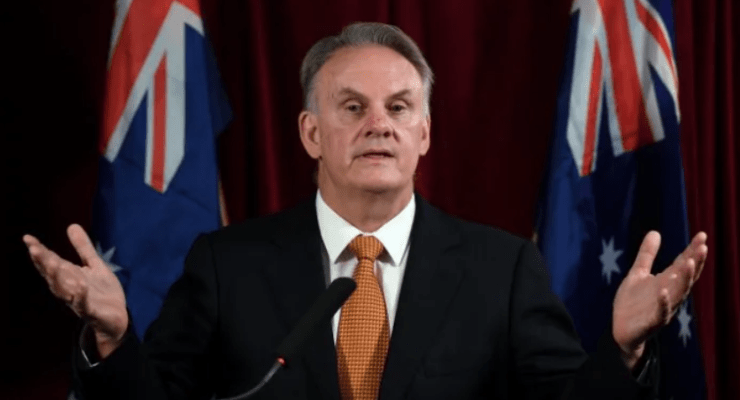
The NSW election marks yet another disappointing result for fringe and extreme political figures and parties who were unable to capitalise on an anemic election campaign and any vestiges of COVID-19 frustration.
A number of conspiracy and conspiracy-promoting figures contested last week’s election. While the major parties fought over gambling and the cost of living, these parties and candidates focused on issues such as vaccines and LGBTQIA+ rights.
But even with a change of government after 12 years and the emergence of other microparties set to sit in NSW Parliament for the first time, the conspiracy-promoting and far-right parties did not have a major impact at the ballot box.
One Nation, led in NSW by Mark Latham, was floated in the media as a potential “kingmaker”, “major player” and “dark horse”. Despite the former Labor leader predicting three or four upper house seats, One Nation is on track to win just a single seat and has nothing to show in the lower house.
Latham made no effort to disguise his loathing of former NSW treasurer Matt Kean, saying that the party had dedicated resources to unseating him in Hornsby but ultimately failed to make a significant dent.
The more fringe candidates fared even worse. Craig Kelly’s United Australia Party-affiliated independents, the anti-vaccine Informed Medical Options Party, and the full-blown, QAnon-believing, AUSTRALIAONE-affiliated independents barely registered on election day, even as they spread baseless claims of election fraud.
The one bright spot is the likely election of the Liberal Democrats’ John Ruddick, who has said he will not get the COVID-19 vaccine, and was an active participant in the freedom movement-led anti-lockdown rallies during the height of the pandemic.
The failure of fringe and extreme candidates to make an impact is the latest example of a dismal election trend since the pandemic, including poor showings at the federal and Victorian state elections.








And good riddance to the lot of them.
My main takeaway from the ABC’s coverage of election night was Matt Kean’s sheer relief that One Nation got nowhere, probably because it matched my own.
So the great Christian Lives Matter movement and their recent activities didn’t leave anything but a nasty stain. Who would have thought.
How come Ruddick got a look in? Time for Parliament to mandate vaccines for all those wishing to take their seats?
I’m wondering if the name of his “party “ confuses people. Very cynical move on his part if that’s true
That was the very objective………………
…………even the Liberals objected to its use as being deliberately deceptive.
Too bad, if Liberal-voting types are not smart enough to tell the difference.
It amuses me, the selective nature of the anti-vaxxers. Bet if they’re pulled from a fiery car crash and rushed to the ED they’re not fussing about what’s being injected and ingested as the medics work to save their life. Bet they’re not saying “morphine? To dull my excruciating pain? Can’t be having that – my neighbour’s cousin’s cat was given morphine and it’s been coughing up fur balls ever since”.
No siree bob, bet they’re relying on the doctor’s scientific knowledge and experience to pull them through, no questions asked.
I bet they’d complain about being exposed to infectious diseases by unvaccinated health staff
There should be mandatory mental health checks conducted on all candidates prior to an election campaign. Might weed out some of the real unhinged psychopaths in society with leadership aspirations (looking at you Riccardo Bossi).
Blimey. That would exclude at least 2 recent PMs
And most of the federal LNP.